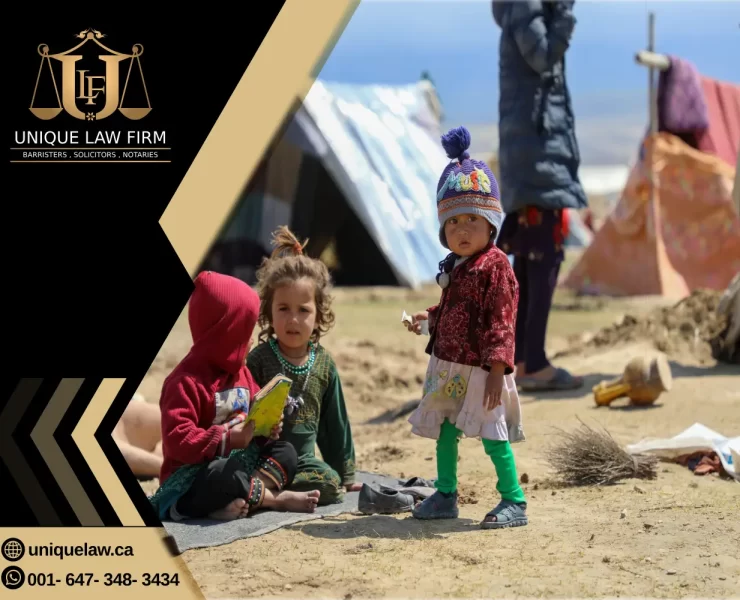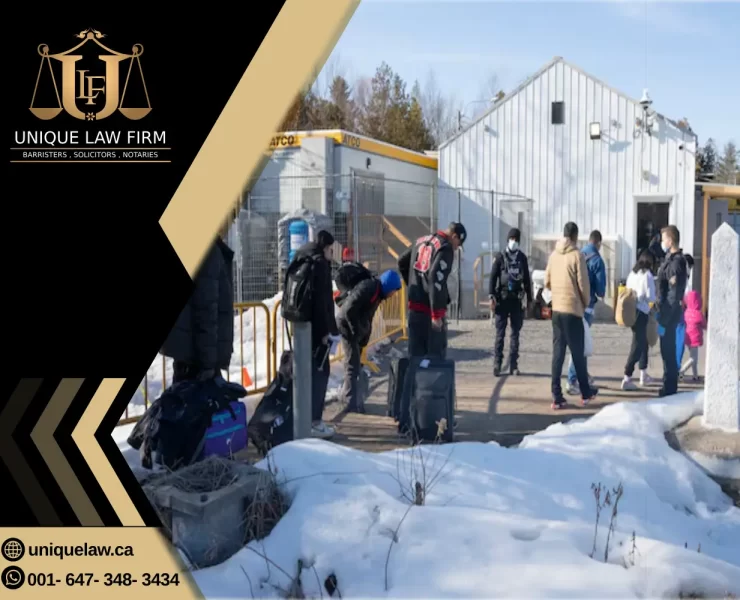The Impact of Global Crises on Refugee Waves to Canada
In today’s world, crises such as wars, political instability, climate change, and human rights violations are profoundly affecting people’s lives. These global challenges have led to large waves of refugees seeking safety and a better future in countries like Canada. This article explores the factors behind these refugee migrations, the effects of these crises, and the challenges refugees face upon arriving in Canada.1. War and Conflict as Drivers of Refugee Migration
Civil Wars
Civil wars are one of the main causes of refugee migrations. Countries like Syria and Afghanistan have experienced prolonged internal conflicts, forcing millions of people to flee in search of peace and security. Many of these refugees see Canada as a potential refuge where they can rebuild their lives.
International Conflicts
Not only civil wars, but also international conflicts play a significant role in refugee movements. For instance, the Iraq War displaced countless Iraqi citizens, many of whom eventually sought refuge in Western countries, including Canada.
2. Human Rights Violations and Refugee Migration
Political Persecution
In many parts of the world, political persecution is rampant, pushing people to leave their homes. Authoritarian regimes, such as those in Venezuela, have forced citizens to flee to safer countries like Canada, seeking freedom and safety from oppressive governments.
Religious and Cultural Persecution
Religious and cultural persecution also contribute to refugee migration. People belonging to persecuted religious minorities, such as certain Muslim, Christian, or Jewish communities, often flee their countries in search of protection and acceptance in countries like Canada.
3. Climate Change and Environmental Crises
Environmental Factors
Climate change is another major driver of refugee migrations, particularly in regions prone to natural disasters. Droughts, floods, and other environmental disasters displace people, leaving them with no choice but to seek refuge in more stable countries like Canada. This is especially true in regions like East Africa, where climate change has led to food shortages and homelessness.
Economic Instability Due to Climate Change
In many developing countries, climate change has wreaked havoc on local economies, especially in agricultural regions. Farmers facing droughts and failing crops often leave their homes, joining the growing number of refugees seeking opportunities abroad.
4. Canada’s Refugee Policies and Global Trends
Refugee Acceptance Policies
Canada has long been known for its openness to refugees, shaping policies to accommodate those fleeing war, persecution, and environmental disasters. Canada’s reputation as a welcoming and multicultural nation is deeply connected to its willingness to provide refuge to people in need.
Social and Economic Challenges
The arrival of large numbers of refugees presents social and economic challenges for Canada. Providing sufficient housing, education, and job opportunities are among the challenges Canada must address to ensure the successful integration of refugees into society.
International Relations and Refugee Acceptance
Canada’s acceptance of refugees plays a significant role in its international standing. As a global leader in humanitarian efforts, Canada must balance its ethical responsibilities with practical considerations, even if this contrasts with countries that prioritize stricter border control.
5. Challenges Faced by Refugees in Canada
Language Barriers
One of the most significant challenges faced by refugees in Canada is language. Without proficiency in English or French, refugees often struggle to find jobs, communicate, and integrate fully into Canadian society.
Cultural and Social Integration
Adjusting to a new culture while maintaining one’s identity can be difficult. Refugees frequently experience isolation or loneliness, which can lead to mental health challenges as they navigate their new environment.
Economic Disparities
Refugees often face economic inequalities due to limited access to services or job opportunities. This can result in poorer living conditions and make it harder for them to establish stable lives in Canada.
6. The Benefits Refugees Bring to Canada
Enhancing Cultural Diversity
Refugees contribute to the rich cultural tapestry of Canada by introducing new customs, languages, and arts. This cultural diversity helps make Canadian society more vibrant and inclusive.
Workforce Contributions
Refugees can also have a positive impact on the workforce. By filling essential roles and contributing to the economy, they help to strengthen local industries and drive economic growth.
Strengthening Canada’s Global Reputation
Canada’s proactive refugee acceptance policies enhance its reputation as a leader in humanitarian efforts and human rights advocacy on the international stage.
7. Conclusion and Recommendations
Global crises will continue to drive refugee waves to countries like Canada. These crises not only impact the lives of millions of people but also present both challenges and opportunities for Canadian society. To ensure successful integration, it is important that Canada implements policies that provide comprehensive support for refugees.
Comprehensive Refugee Policies
The government of Canada must focus on creating policies that offer holistic support to refugees. This includes access to language training, job placement services, and mental health support.
Social Awareness and Education
Raising awareness about the challenges refugees face can help reduce prejudice and foster greater solidarity within Canadian society. This can be achieved through educational initiatives, community engagement, and cultural events.
International Collaboration
International cooperation is essential for effectively addressing global refugee challenges. Canada must continue to lead discussions on human rights and work with other nations to improve conditions for refugees both in their countries of origin and in host countries.
Conclusion
The global crises that lead to waves of refugees coming to Canada are undeniable. While these crises present significant challenges, they also offer opportunities for Canada to enrich its society through cultural diversity and international leadership. By supporting the integration of refugees and addressing existing challenges, Canada can ensure a brighter future for both its citizens and those seeking refuge on its shores.


















